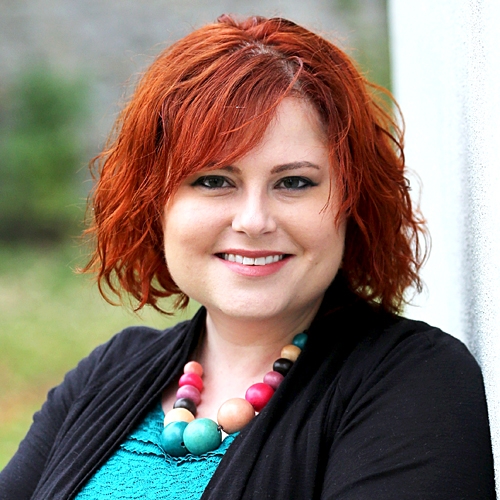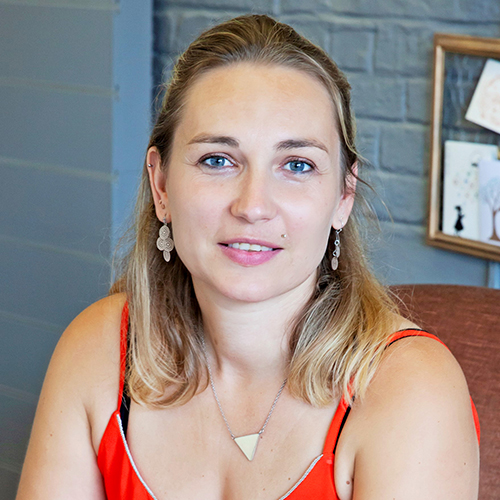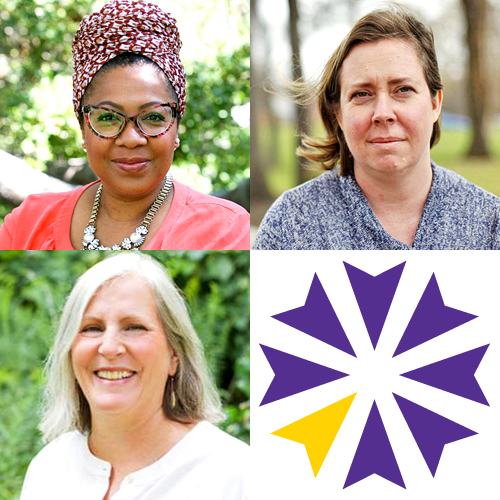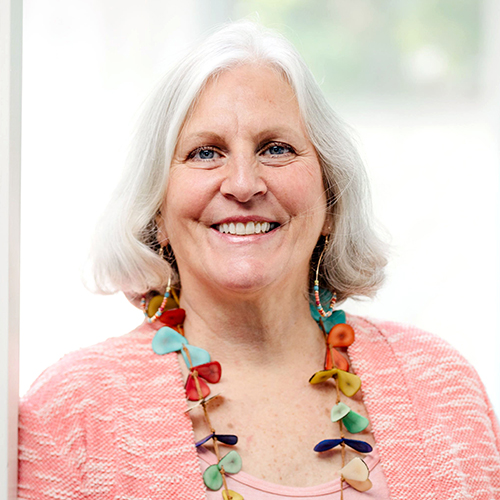

Tamara Drenttel Brand holds an MA in Near Eastern Studies from the University of Arizona and a Master’s in Public Health (MPH) from the American University of Beirut. She spent 10 years in the Middle East, where she worked as a public health practitioner, infant and maternal health consultant and an IBCLC. She has supported breastfeeding dyads from all over the world both in private practice and as a volunteer. In 2011, she founded and still actively facilitates “Mama 2 Mama Beirut Breastfeeding Support,” the largest breastfeeding peer support network in the Middle East (currently at 25k+ members). Additionally, she founded Galactablog, a professional group for lactation specialists and those aspiring-to-be (currently at 4.7k+ members) and has authored several articles for La Leche League’s monthly leader publications in both the Middle East and Ireland.
She is currently an international speaker on the topics dealing with breastfeeding in the Middle East, innovative lactation teaching strategies, working in resource-scarce settings, providing culturally sensitive lactation support, developing and implementing peer counselor training programs, mast cell disease and other related topics. Due to her own chronic health conditions, she has a special interest in educating others about mast cell disease and supporting those with chronic illnesses. She currently resides in a seaside village in Ireland with her family.
Topic: Contextualizing Breastfeeding in Lebanon - [View Abstract]
Topic: Lactation Education Outside the Box: Innovative Teaching Strategies to Engage Your Audience - [View Abstract]
Topic: Mast Cell Diseases and Lactation Care in the Post-Covid Era - [View Abstract]
Topic: Providing Culturally Sensitive Support for Breastfeeding Muslim Families - [View Abstract]
Topic: Reflections on a Breastfeeding Peer Counselor Program in Lebanon: Lessons Learned and Looking Forward - [View Abstract]
In Lebanon, nearly all mothers attempt to initiate breastfeeding. Despite high initiation rates, only 40% of mothers exclusively breastfed through the first month and nationally, a mere 2.4% continued to exclusively breastfeed between 4 and 5 months. Early weaning is a pressing public health concern as infant and under-5 morbidity rates are high. Environmental issues like water quality and sanitation can be problematic when supplemental formula or contaminated water is used. This presentation examines the breastfeeding trends in Lebanon and explores the complex and often overlapping historical, social, cultural, economic and policy determinants behind early weaning. Next, this presentation analyzes newly emerging factors such as the power of social media, collaboration of lactation specialists and the rise of influential mother support networks. The presentation will conclude by highlighting the growing breastfeeding support infrastructure in Lebanon, for the most part, facilitated by breastfeeding mothers themselves.

View Details / Enroll


Carole Hervé is a private IBCLC (since 2011). She helps breastfeeding mothers at home or location of their choice, mostly in Paris and in the nearest neighborhood.
Prior to opening her private practice, she has been a La Leche Leader since 2008. Carole is passionate about information-gathering, education, articles writing, communications and training to provide lactation consulting and sensitive support to the families she works with.
She has been trained to support families with Sensory Food Aversion issues by Catherine Senez, a speech therapist in 2013 and is also BNCLC (Biological Nurturing Certified Lactation Consultant®).
She has been a speaker at the GOLD Lactation Online Conference in 2012, and in 2013 she translated 20 presentations from the GOLD Lactation Online Conference into French.
Carole has been strongly involved in the coordination of the International Breastfeeding Day (Journée Internationale de l’Allaitement), an event organized by La Leche League France. Carole is the mother of three children born in 2001, 2003 and 2006.
Children with Sensory Food Aversions consistently refuse to eat certain foods related to the taste, texture, temperature, smell and/or appearance. Feedings or mealtimes are therefore a displeasure for everyone.
Oral disorders are eating disorders caused by hypersensitivity.
Food aversions are common and believed to occur along a spectrum of severity, with some children reluctant to try new foods, and refusing whole food groups (vegetables, fruits, meats). Indeed, after an aversive experience, some children tend to generalize and refuse foods that look and/or smell like the aversive food (e.g., aversion to broccoli may be generalized to all green foods).
Reactions to the aversive foods can range from grimacing to gagging, throwing up, or spitting out the food. Some babies cannot even accept to be touched near their face, or mouth, they may not accept to be held in a wrap. Some children can't stand to have dirty hands, to walk in the sand, to be touched.
While this can be a challenge when a mother is trying to start solid food, this hypersensitivity may also even start with breastfeeding.
Babies need proper nutrition to grow and thrive, and difficulties with feeding in infancy can be a worrisome and become a dangerous condition. There are many different reasons why a baby may struggle with feeding. All merit evaluation and treatment. This conference aims at exploring solutions to support families who deal with oral aversion.

View Details / Enroll

View Details / Enroll

Counseling and Anticipatory Guidance to Reduce Perceived Insufficient Milk Production

Tameka Jackson-Dyer is an International Board-Certified Lactation Consultant (IBCLC) and Community Health Worker whose passion is community outreach. She holds a Bachelor of Applied Science in Health Studies from Siena Heights University, several lactation certifications and has been in the field for almost 20 years- honing her counseling and clinical skills in WIC agencies, OB/Gyn offices and Baby Friendly hospitals throughout the metro Detroit area. Her work as Manager of Community Collaboration with Coffective and consulting work with the EMU Center for Health Disparities, Innovations & Studies on their CDC/REACH and NACCHO grants- allows her to provide a voice for the populations who are historically underrepresented in conversations about breastfeeding support. To ensure she reaches as many families in her community as she can, the wife and mother of three owns a private practice, Crazymilklady Lactation Support Services, LLC, serves as Chair of the Metro Detroit/ Wayne County Breastfeeding Coalition, is a co-founder of the Southeast Michigan IBCLC’s of Color and volunteers as a Sisterfriend mentor with the Detroit Birthing Project.

COVID-19 Guidance for Maternal and Newborn Care: Who’s Doing What and Why

Karleen Gribble (BRurSc, PhD) is an Adjunct Associate Professor in the School of Nursing and Midwifery at Western Sydney University.
Her interests include infant and young child feeding in emergencies, marketing of breastmilk substitutes, parenting and care of maltreated children, child-caregiver and caregiver-child attachment, adoption reform, and treatment of infants and young children within the child protection, immigration detention, and criminal justice systems.
She has published research on these subjects in peer-reviewed journals, provided media commentary, contributed to government enquiries, provided expert opinion for courts, and engaged in training of health professionals, social workers, and humanitarian workers on these subjects.
Karleen is an Australian Breastfeeding Association Community Educator and Breastfeeding Counsellor. Since 2010 she has been a member of the Infant and Young Child Feeding in Emergencies Core Group and has been at the forefront of the development of policy, training and research in the area of infant and young child feeding in emergencies.
Topic: Infant and Young Child Feeding in Emergencies: Background, Best Practice, and What You Can Do - [View Abstract]
Topic: Milk Sharing: Comparative Risks and Biomedical Ethics - [View Abstract]
Where women are suspected or confirmed as having COVID-19, hospital practices have ranged from isolating infants from their mothers and proscribing the provision of expressed breastmilk to supporting mothers to have skin-to-skin with their infants, early initiation of breastfeeding, direct breastfeeding, and rooming in day and night.
This presentation will briefly summarize the evidence base for breastfeeding and close mother-infant contact in the COVID-19 pandemic. It will also describe the variance in government and professional development guidance around the world, anomalies in guidance, which guidance documents have had the most influence internationally, and provide examples of good and poor practice in guidance development. Finally, this presentation will discuss the importance of emergency planning for infant and young child feeding and the need to learn from the mistakes of the COVID-19 pandemic.

View Details / Enroll
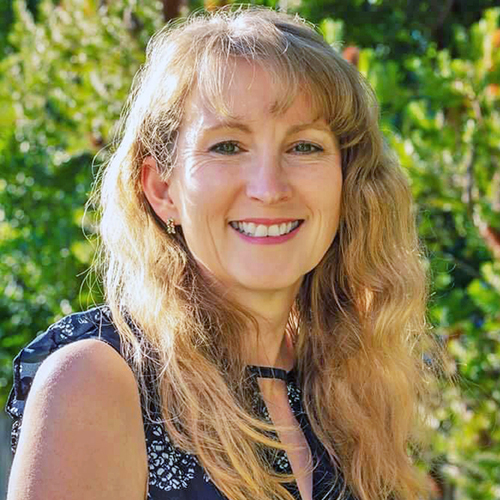
View Details / Enroll
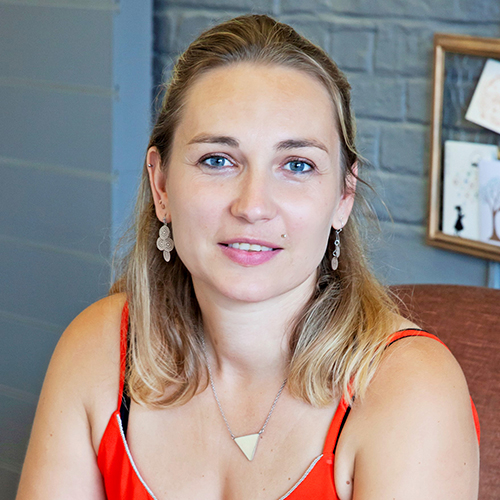

Joke graduated as a Midwife in 2006 and a Master in Midwifery in 2008. She obtained the IBCLC lactation consultant degree in 2011. She graduated in specialised applied pharmacology in 2015. She has experience as midwife and lactation consultant in her own primary care practice, lecturer at the University College Brussels, head editor of the Flemish Journal of Midwifery and board member of the Flemish Organisation of midwives and ELACTA. At the moment Joke is also a researcher on COVID-19 vaccination during lactation at the University of Brussels.
Topic: Ready-Made Educational Breastfeeding Material to Improve Parental Education and Empower Parents. - [View Abstract]
Breastfeeding parents will encounter the SARS-CoV-2 virus and may contract COVID-19. The availability of new vaccines against COVID-19 created a need for guidance about vaccination during lactation. We aim to get an insight into the effects of COVID-19 vaccines during the lactation period. This entails the safety of vaccination during lactation, the immune response in lactating women and the excretion of immunological factors in breastmilk. Not a lot is known about the transfer of immunoglobulin A (IgA) and the mechanisms by which these antibodies provide protection to the neonate via breast milk. This presentation contributes to the knowledge of SARS-COV-2 infections and the use of different vaccine-platforms during breastfeeding and will benefit the population with respect to public health. As vaccination during lactation could result in clinically relevant sIgA-titers in breastmilk and protecting the child in early life, it is of importance that women have this information to decide whether to take the vaccine.
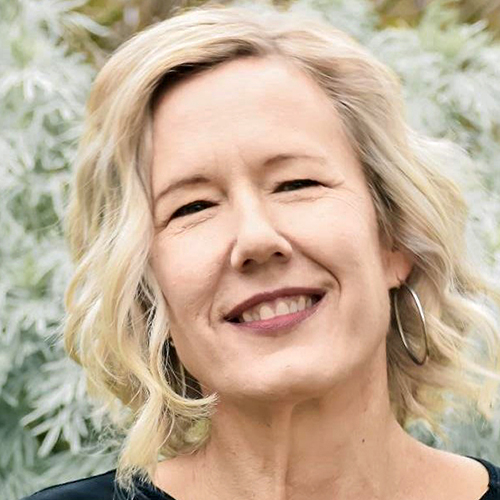

Dr. Gerner has been a Maternity and Pediatric Specialist in private practice for over 17 years with an additional focus on functional infant cranial work. She teaches other professionals to support breastfeeding across the USA and internationally. She is a wife, mother of 3 grown children, and lives in Northern CA with her husband and their 2 rescued dogs.
Topic: Introductions and Establishing the Value of Integration - [View Abstract]
Topic: Nitty Gritty Anatomy: The Cranium, Supporting Structure and the Muscle Layer - [View Abstract]
Topic: Tying It All Together- Consequences of Pathology and Ideal Collaboration - [View Abstract]
Biology often explains it all. Beyond the cranial and Musculo-skeletal system, the cerebral spinal/dural system and the cranial nerves play a huge roll not only in feeding function, but in the overall physical and cognitive health of the child. These systems are reciprocal- the structural system can cause neurological impairment; and likewise, neurological impairment can lead to structural imbalance and weak muscles. Many different therapeutic disciplines acknowledge this relationship in different ways. This presentation focuses on: (1) the cranial nerves specific to breastfeeding function; (2) The dura and CSF (cerebral spinal fluid) systems; (3) clinical presentations: Failure to thrive, colic, KISS/KIDD (4) Studies and articles from various approaches of care; and (5) the consequences of Cesarean Section on CSF and neuropathology.
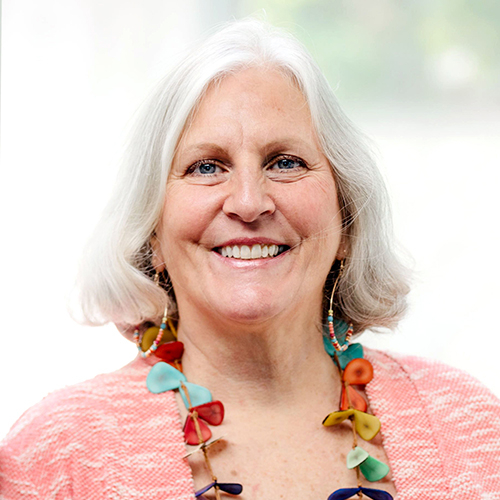
Cranial Nerves: A Critical Component of the Process of Breastfeeding

Dr. Hazelbaker has been a therapist in private practice for over 30 years. She specializes in cross-disciplinary treatment and to that end has taken training in several modalities to best assist her clients. She is a certified Craniosacral Therapist, a Lymph Drainage Therapy practitioner, a Tummy Time™ Trainer, a Haller Method practitioner, A Pre and Perinatal Psychology Educator, a Lactation Therapist Diplomate, an International Board Certified Lactation Consultant and a fellow of the International Lactation Consultant Association.
She earned her Master’s Degree from Pacific Oaks College (Human Development specializing in Human Lactation) and her doctorate from The Union Institute and University (Psychology, specializing in Energetic and Transformational healing.)
People recognize her as an expert on infant sucking issues caused by various structural problems like torticollis, plagiocephaly, brachycephaly and tissue shock-trauma. She invented the Hazelbaker™ FingerFeeder and the Infant Breastfeeding CranioSacral Protocol™ to assist in the resolution of this type of infant sucking dysfunction.
Topic: Cranial Nerves: A Critical Component of the Process of Breastfeeding - [View Abstract]
Topic: Creating Flow: Using Lymphatic Drainage Therapy for Breastfeeding Issues - [View Abstract]
Topic: Finger Feeding: What Do We Know? What Should We Know? - [View Abstract]
Topic: Gamechangers: New studies that will change the way we think about tongue-tie - [View Abstract]
Topic: Infant Trauma: Impact on Breastfeeding - [View Abstract]
Topic: The Faux Tie: When is a "Tongue-tie" NOT a Tongue-tie? - [View Abstract]
Topic: The Impact of Bodywork on Infant Breastfeeding - [View Abstract]
Topic: What Does Torticollis Have to do with Breastfeeding? - [View Abstract]
This presentation covers the role of the cranial nerves in coordinating suck-swallow-breathe, a critical component of the process of breastfeeding. In this presentation, Dr. Hazelbaker identifies the main nuclei of these cranial nerves, how the oral and oro-pharyngeal areas are innervated, and presents the pathways and functions of each relevant cranial nerve with special emphasis on the trigeminal and vagal nerves and their nuclei, describing how each impacts the actions needed for effective breastfeeding.
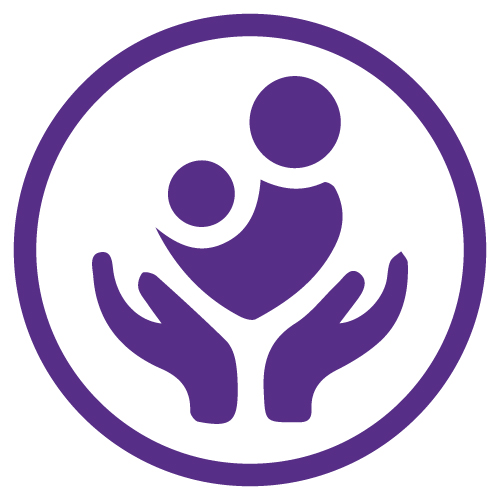
View Details / Enroll

Creating Flow: Using Lymphatic Drainage Therapy for Breastfeeding Issues

Dr. Hazelbaker has been a therapist in private practice for over 30 years. She specializes in cross-disciplinary treatment and to that end has taken training in several modalities to best assist her clients. She is a certified Craniosacral Therapist, a Lymph Drainage Therapy practitioner, a Tummy Time™ Trainer, a Haller Method practitioner, A Pre and Perinatal Psychology Educator, a Lactation Therapist Diplomate, an International Board Certified Lactation Consultant and a fellow of the International Lactation Consultant Association.
She earned her Master’s Degree from Pacific Oaks College (Human Development specializing in Human Lactation) and her doctorate from The Union Institute and University (Psychology, specializing in Energetic and Transformational healing.)
People recognize her as an expert on infant sucking issues caused by various structural problems like torticollis, plagiocephaly, brachycephaly and tissue shock-trauma. She invented the Hazelbaker™ FingerFeeder and the Infant Breastfeeding CranioSacral Protocol™ to assist in the resolution of this type of infant sucking dysfunction.
Topic: Cranial Nerves: A Critical Component of the Process of Breastfeeding - [View Abstract]
Topic: Creating Flow: Using Lymphatic Drainage Therapy for Breastfeeding Issues - [View Abstract]
Topic: Finger Feeding: What Do We Know? What Should We Know? - [View Abstract]
Topic: Gamechangers: New studies that will change the way we think about tongue-tie - [View Abstract]
Topic: Infant Trauma: Impact on Breastfeeding - [View Abstract]
Topic: The Faux Tie: When is a "Tongue-tie" NOT a Tongue-tie? - [View Abstract]
Topic: The Impact of Bodywork on Infant Breastfeeding - [View Abstract]
Topic: What Does Torticollis Have to do with Breastfeeding? - [View Abstract]
Surprisingly, lymphatic congestion forms the foundation of some lactation problems like chronic plugged ducts and un-resolving nipple and breast pain. In this cutting-edge presentation, Dr. Hazelbaker covers the anatomy and physiology of the lymphatic system (especially as it pertains to the breast) and discusses the most common presentations and causes of lymphatic breast congestion. She demonstrates the Lymphatic Drainage Therapy technique in videos of three cases. Dr. Hazelbaker leaves the audience with a brief breast self-care regimen that can enhance the breast health of every participant when used consistently.
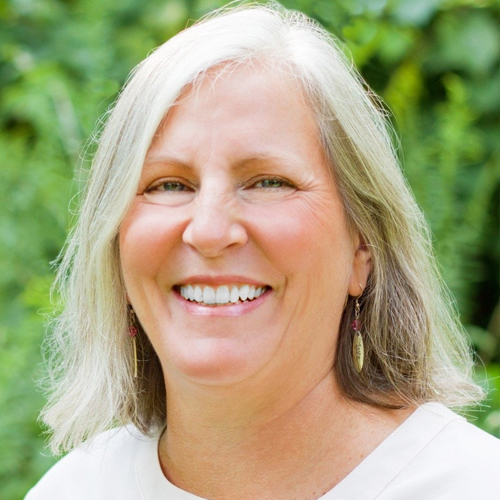
View Details / Enroll


Catherine Watson Genna BS, IBCLC is an International Board Certified Lactation Consultant in private practice in New York City. Certified in 1992, Catherine is particularly interested in helping moms and babies breastfeed when they have medical challenges and is an active clinical mentor. She speaks to healthcare professionals around the world on assisting breastfeeding babies with anatomical, genetic or neurological problems. Her presentations and her writing are enriched by her clinical photographs and videos. Catherine collaborates with Columbia University and Tel Aviv University Departments of Biomedical Engineering on research projects investigating the biomechanics of the lactating nipple and various aspects of sucking and swallowing in breastfeeding infants. She is the author of Selecting and Using Breastfeeding Tools: Improving Care and Outcomes (Praeclarus Press 2009) and Supporting Sucking Skills in Breastfeeding Infants (Jones and Bartlett Learning 2008, 2013, 2017) as well as professional journal articles and chapters in the Core Curriculum for Lactation Consultant Practice and Breastfeeding and Human Lactation. Catherine served as Associate Editor of the United States Lactation Consultant Association’s official journal Clinical Lactation for its first seven years.
Topic: Breastfeeding Strategies for Tongue-tied Infants - [View Abstract]
Topic: Critical Assessment of Apparent Tongue-Tie - [View Abstract]
Topic: Introduction to Cervical Auscultation - [View Abstract]
Topic: Lactation Support for Infant Biomedical Challenges - [View Abstract]
Topic: Organization of tongue movements before and after frenotomy for posterior tongue-tie: an Ultrasound analysis - [View Abstract]
Topic: Positioning and Latch for Breastfeeding - [View Abstract]
Topic: Ultrasound Analysis of Sucking: Tongue-Tie and Confounders - [View Abstract]
Topic: Using Breastfeeding Supplementers - [View Abstract]
Tongue tie is one potential cause of breastfeeding difficulties, but most authorities fear that frenotomy is overused. This presentation explores research on the role of the tongue during normal breastfeeding; briefly reviews validated assessment tools, and proposes other management, structural and medical issues that impact tongue mobility and feeding.

Cultural Competence or Cultural Humility? A Roadmap for Lactation Specialists

Cynthia Good, MS Clinical Psychology, is an International Board Certified Lactation Consultant, Clinical Counselor, author, consultant, and internationally recognized speaker. She is the Director of LifeCircle Consulting, LLC and is Certified in Acute Traumatic Stress Management. She is based in the Seattle, Washington, USA area, where she formerly served as an Adjunct Professor in the Department of Midwifery at Bastyr University where she taught counseling skills and is a therapist at Sandbox Therapy Group where she works with children, adults, and families. Cynthia has a strong interest in the emerging field of lactational psychology. She brings the evidence and insights of psychology and lactation consulting to her presentations, providing information and teaching skills that are essential to understanding and effectively responding to the complex psychosocial realities of families living in diverse contexts. The focus of her presentations includes communication skills and counseling techniques for perinatal care providers; equity, diversity, and inclusion; infant feeding rhetoric; perinatal mental health; perinatal loss, grief, and trauma; ethics; serving as an expert witness in lactation-related court cases; cultural competence and humility; vitamin D; and more.
Topic: Cultural Competence or Cultural Humility? A Roadmap for Lactation Specialists - [View Abstract]
Topic: Heartbroken: Loss and Grief in the Perinatal Time Period - [View Abstract]
Topic: It Wasn’t Supposed to be Like This: Traumatic Birth, Traumatic Stress, and Breastfeeding - [View Abstract]
Topic: My Brain is Doing What? Bias, Ethics, and the Lactation Specialist - [View Abstract]
Topic: Perinatal Mental Health Screening: A Primer for Lactation Specialists - [View Abstract]
Topic: The IBCLC as Expert Witness: Role, Strategies, and Resources - [View Abstract]
Topic: The Rug Pulled Out from Underneath Me: Depression During Pregnancy and After Birth - [View Abstract]
Topic: Unpacking the Invisible Diaper Bag of White Privilege: An Overview of Racial Inequities in Breastfeeding Support - [View Abstract]
Topic: We’re Human, Too: Hidden Dynamics in Our Communication with Clients - [View Abstract]
Culture is an integral part of all encounters with breastfeeding families—whether the lactation specialist’s and the family’s cultural backgrounds are similar or dissimilar. Cultural competence is explicitly or implicitly mandated or recommended in codes of ethics, position statements, and legislation related to a variety of fields, including those that involve the provision of breastfeeding support. For example, IBCLCs are ethically required to provide culturally appropriate care. In spite of the mandate for cultural competence, there is a dearth of information in the field of breastfeeding support regarding its development. This session reviews the ethical call for the development of cultural competence. Five areas of cultural competence—including cultural awareness, knowledge, skill, encounters, and desire—are presented and contrasted with cultural humility. This session also offers 10 “guideposts” for lactation specialists to explore on the non-linear, lifelong, transformative journey of cultural humility.



